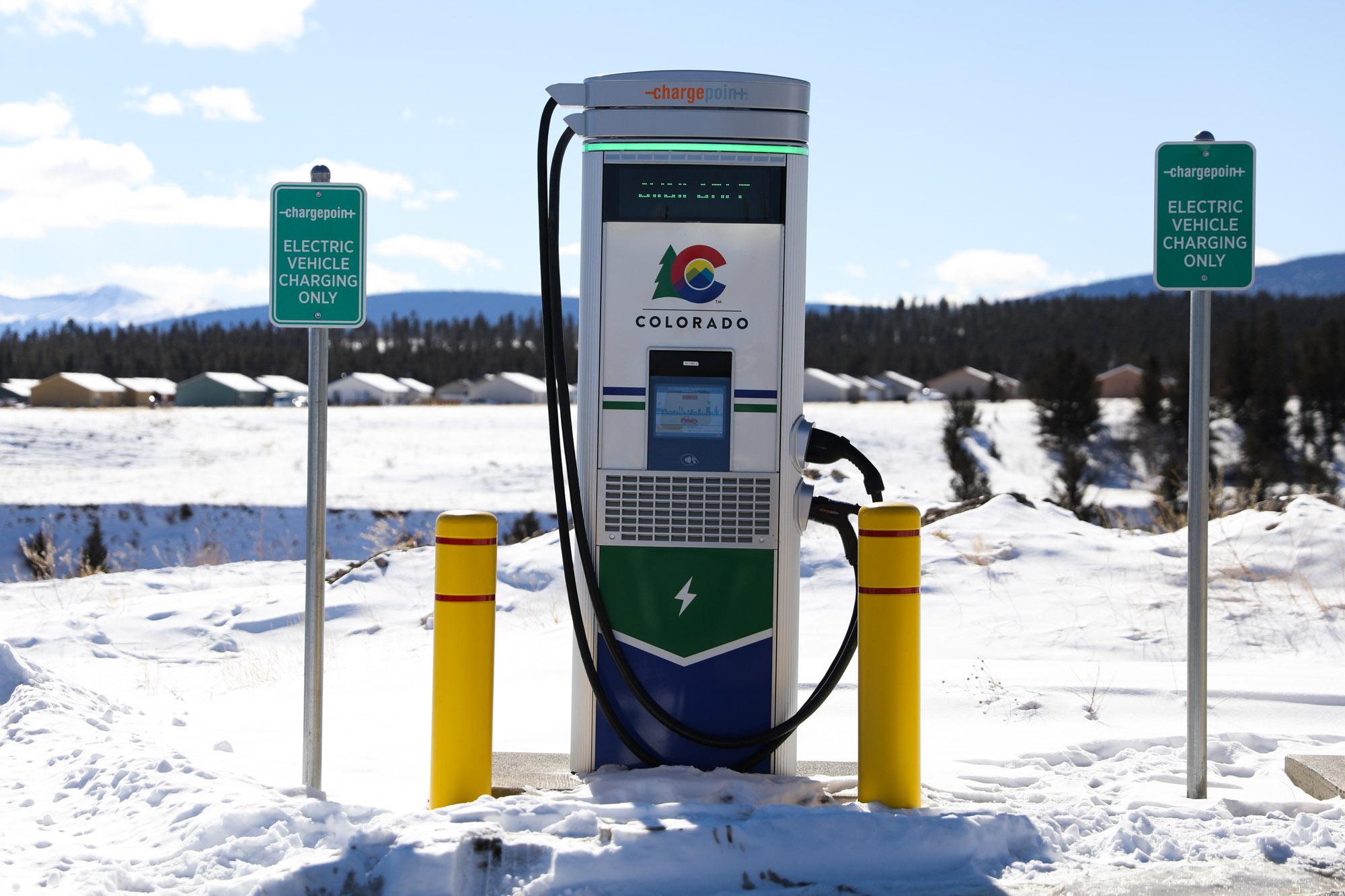
The state of Colorado is planning to launch a vehicle exchange program this summer that would shave thousands of dollars off the price of a new or used electric vehicle — if you’re willing to part with your current car.
State Energy Office staff will finalize details of the “Vehicle Exchange Colorado” program in the coming months. Tentatively, the state is planning to give participants an instant $6,000 point-of-sale rebate on a new electric or plug-in hybrid vehicle, and a $4,000 rebate for a used electric or plug-in hybrid vehicle.
“It's a really exciting new program,” said Carrie Atiyeh, senior program manager at the Colorado Energy Office. “This is something that is going to be new for the state.”
The state has allocated $2 million for the program through the middle of 2024, Atiyeh said. It’s part of the state’s larger climate-minded goal to put 940,000 electric vehicles on the road by the end of the decade. Funding for the program is coming from transportation fees the legislature approved in 2021.
The program will be restricted to low- and moderate-income Colorado residents. The state is proposing to limit participation to households that are enrolled in other income-qualified programs or that earn less than 80 percent of the area median income.
That would amount to an annual income of $62,500 for a one-person household or $103,750 for a family of four in Denver. The cap will change from locality to locality and is based on calculations from the federal Department of Housing and Urban Development.
Vehicles from a model year 2011 or older, or those that fail a state emissions test, are eligible for trade-ins. They must be in working order and use gasoline or diesel, and the participant must have owned the vehicle for more than one year.
Atiyeh said the new instant rebate can be “stacked” with other state-level incentives, such as income-qualified rebates of up to $5,500 from utilities like Xcel Energy and Black Hills Energy for up to a $11,500 discount. Alternatively, a consumer could stack the voucher with the state’s $2,000 tax credit available to any resident regardless of income.
Some buyers will also be able to stack the state incentives with a federal credit of up to $7,500, depending on their individual tax circumstances.
“We are working on those program details,” Atiyeh said. “There are a lot of incentives out there.”
State officials have also touted EVs’ lower operation and maintenance costs versus a typical internal combustion engine-powered vehicle. They hope lowering upfront costs will help low-income Coloradans make the switch.
But basic hurdles still remain. During an online seminar on the program last month, a woman who said she lived in a trailer park wanted to know how she could charge an electric vehicle.
Edward Piersa, a program manager at the Colorado Energy Office, referred her to state incentive programs aimed at building community-level charging stations and other public fast chargers.
“It’s definitely something we know is problematic or challenging for some people,” Piersa said. “I live in an apartment complex without electric vehicle charging infrastructure. So I definitely can relate.”
Xcel Energy has struggled to attract customers to its income-qualified rebate program, which it launched in 2021. A report for utility regulators reveals the company awarded 101 rebates through the program by the end of 2022 — 549 less than the target the company originally filed with the state. The company is required to share the information because ratepayers fund the program.
Michelle Aguayo, a company spokesperson, said the shortfall mainly occurred due to supply chain issues, which inflated prices and limited inventory at local car dealers. She expects applications to rise as those problems subside and more car dealers partner with Xcel to market the rebates.
The state will also teach dealerships about its new program and will launch a public outreach and marketing campaign, Atiyeh said.
“Just raising awareness about a new program like this is going to be really important,” she said.
CPR reporter Sam Brasch contributed to this report.









